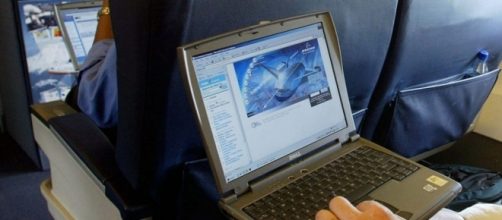Dhs Secretary John Kelly had indicated that a more exhaustive laptop ban in the cabin of international flights to and from the United States was in the cards. There is already a ban applicable to a select number of airlines that originate in specific countries and DHS is keen to extend the scope of the ban because of issues connected to security.
However, officials of the FAA have indicated that it is a complicated matter and meetings are happening with DHS to evolve a solution. Dave Lapan, the DHS spokesman, has clarified that DHS is responsible for the security, while the FAA has to take care of issues connected to safety aspects.
Extension of laptop ban
Fox New reports that the laptop ban is, at present, applicable to flights that are coming into the United States and that originate in specifically identified countries. However, the proposal to widen the scope of the ban arose when a fire incident came to light in a cockpit. It was related to an electronic device but turned out to be a false alarm.
Anyway, expansion of the ban on electronic devices larger than a cellphone appears to be replete with complications and meetings are being held between the FAA and DHS officials along with the airlines to evolve a suitable formula that can take care of all aspects. These meetings have helped to clear some misconceptions.
Future scenario of air travel
The initial ban on carrying of laptops as cabin luggage was restricted to a certain range of electronic devices and was applicable to only on U.S.-bound flights from 13 international airports. The reason to impose the laptop ban was increased terror threats from groups like the Al Qaeda who had plans to smuggle explosives concealed in electronic devices and blow up the planes. Airports identified for the initial ban were from Jordan, Cairo, Saudi Arabia, Morocco, Qatar, Dubai and Abu Dhabi.
In a further development, the TSA has introduced new screening protocols for carry-on bags in a select number of airports in the United States. This could be expanded to cover other airports.
As per this program, passengers will have to place any electronic item larger than a cell phone in a separate bin for X-ray screening. Officials may also ask passengers to place other carry-on items in separate bins.
The implementation of the ban on carrying laptops as cabin luggage could have far-reaching implications because many long-distance passengers who carry laptops are business people. Moreover, there is a fear of loss of sensitive data stored in the laptop if it is separated from its owner.
The threat of terrorists trying to blow up an aircraft in flight is very much a matter of concern and it has to be addressed by DHS, the FAA, the TSA, and others who are responsible for the safety and security of the plane and the passengers.


